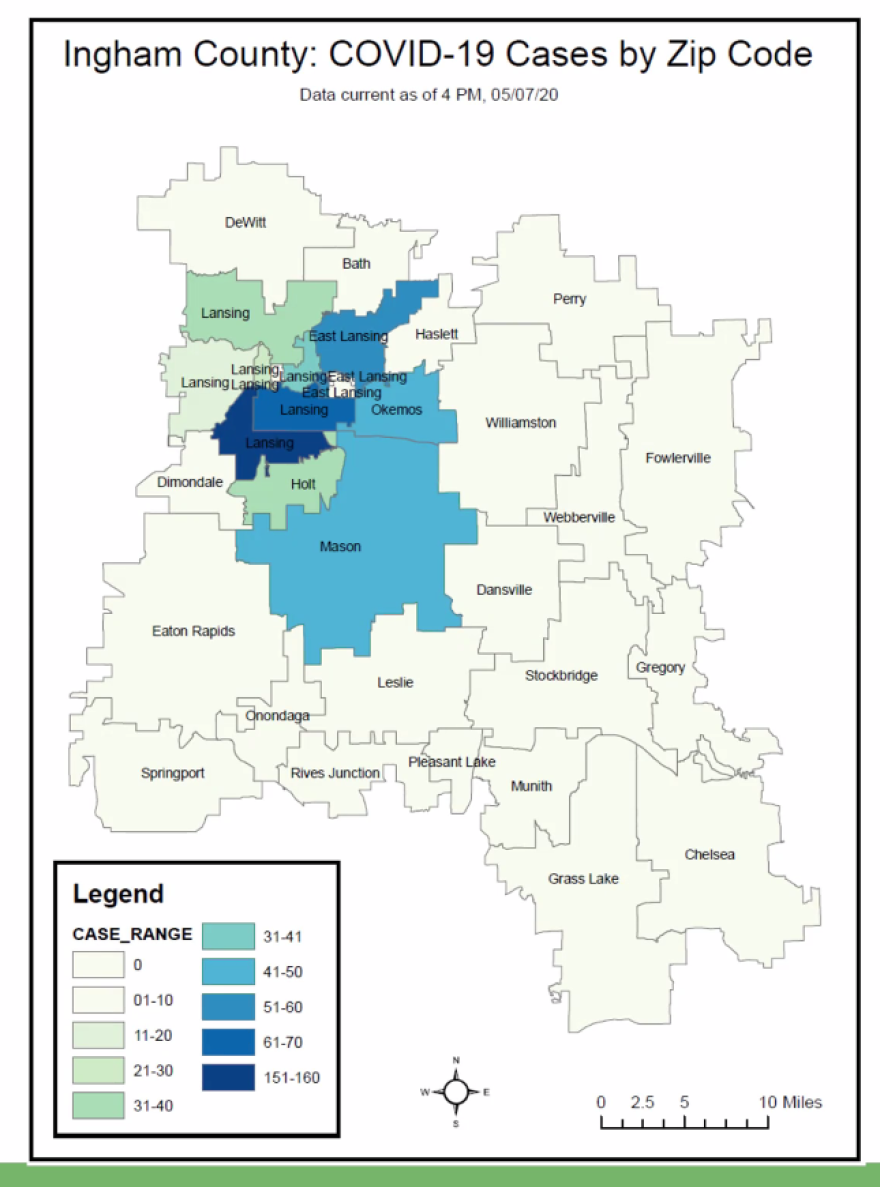As Michigan moves into its third month of the coronavirus pandemic, the curve in Ingham County is flattening. Now that testing is more widespread, officials are getting additional data that helps them understand the epidemic in their own communities, and plan for the next stages.
Health officials in Ingham County are casting a wider net of testing, and now they’re getting back data that shows COVID-19 is disproportionately impacting Black and Asian people in the 48911 zip-code on the southside of Lansing.
More Data, More Health Disparities
The prevalence rate, or rate of COVID-19 modeled per 100,000 people, is three times higher for Black people and roughly four times higher for Asian people than White people in Lansing’s 48911 zipcode.
In a Friday briefing, Ingham County Medical Director, Dr. Nike Shoyinka, said the disparity is not because of race, but rather social determinants of health.
“It’s not about genetics, it’s not about where you’re from. It’s really about what your living conditions are like. Where you work play, eat, where you worship. How do you make your money? Could you stay at home or did you have to go out every single day?” said Shoyinka.

Ingham County health officer Linda Vail said many of the people affected live in multi-family and or multi-generational homes, have limited transportation, and are low economic status. Closer proximity and inability to isolate from a sick family member or cohabitant can contribute to spread, especially if individuals are leaving the home to work.
Additionally, health officials noted many of the people with positive cases in 48911 were younger, essential workers who initially presented as asymptomatic.
Now the health department is tasked with addressing community leaders to share information about the spread of the virus.
Calling All Contact Tracers
States and health departments across the country are also turning to contact tracers; People working to call COVID-19 positive people and figure out who they came into contact with. The National Association of County and City Health Officials recommends hiring 30 contact tracers per 100,000 people. Following that recommendation, Ingham County would need to employ roughly 90 contact tracers for its 292,000 people.
Linda Vail said she’s comfortable with the amount of contact tracing here.
“I mean we need that many contact tracers if we have that many cases. So, you know, we’ve managed this number of cases with far fewer right now,” said Vail.
The county currently has 35 people doing contact tracing.
In counties with fewer cases, Vail said an army of contact tracers isn’t needed, so Ingham County could ostensibly have far fewer contact tracers than hard-hit areas like Southeast Michigan and the city of Detroit. According to reporting from NPR, the state currently employees 130 contact tracers and plant to hire 3,400 more in the coming months.
Vail said the county is part of a soft-launch for a statewide contact tracing program, and the county is using volunteers from nursing and medical schools to provide assistance.
The state announced a new contact tracing contract after a botched initial contract was awarded to a Democratic-linked firm and hastily canceled after outcry from Republicans.
The new contracts have been awarded to Rock Connections LLC “for volunteer management” and Deloitte “for technology integration.”
According to a release from the state calls will be made daily for check-ins and will occur seven days a week for the next six to twelve months. More than 3,500 volunteers have been trained by the state to contact trace, and will soon be made available for local health departments. Previously Rock Connections operated a call-center with 40 full-time employees at the Michigan State Fairgrounds in Detroit.



